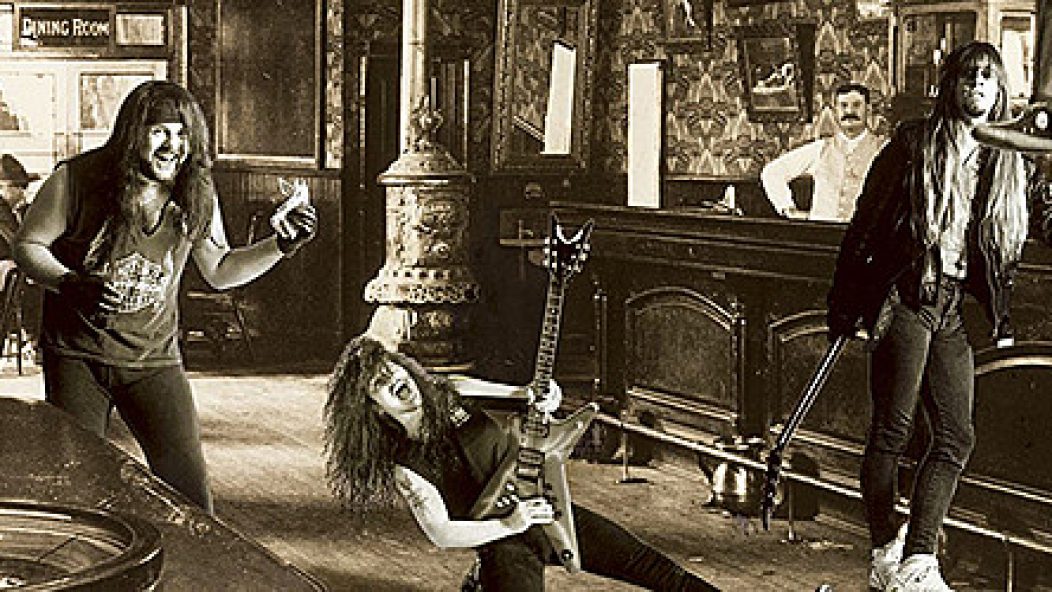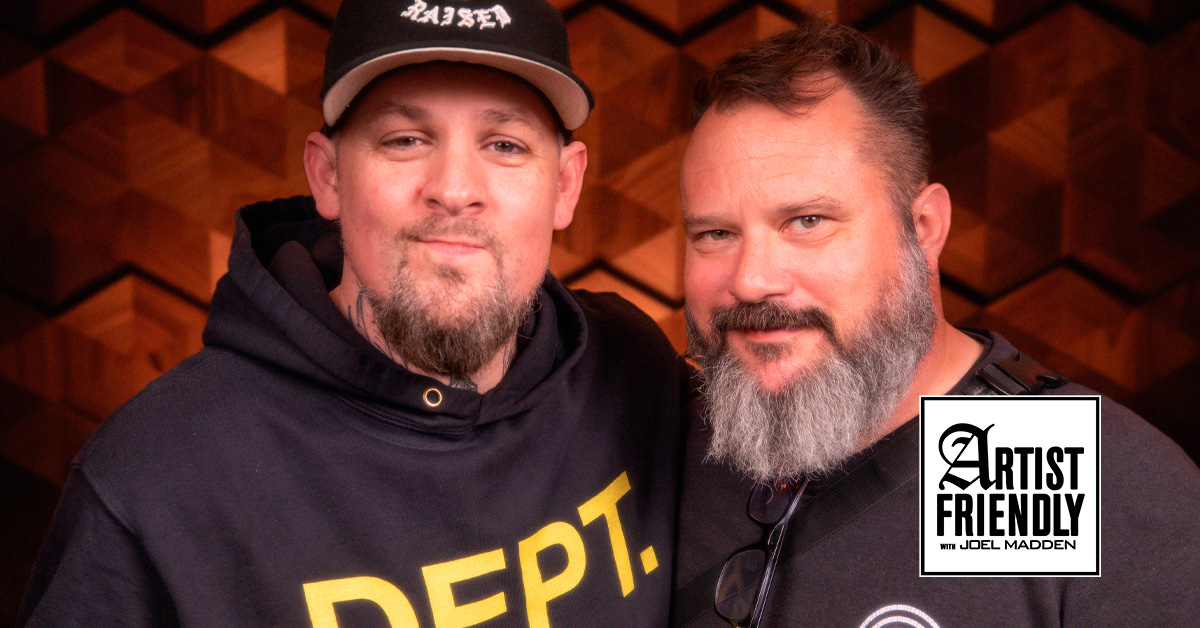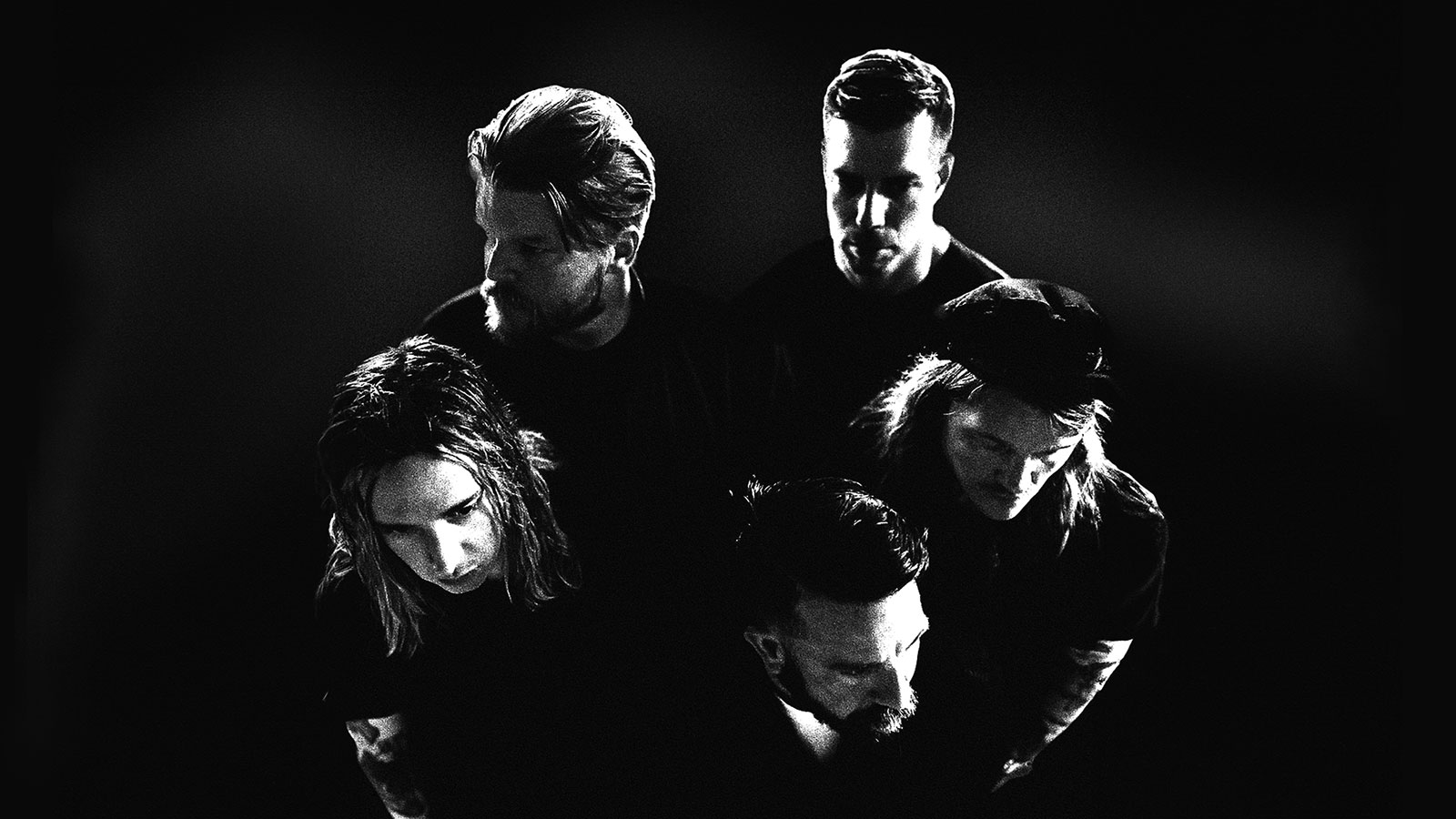
Pantera's Cowboys From Hell Turns 25
…
I write from the view of a guy raised in a rural/suburban area who had limited exposure to heavy music at first, other than browsing Metallica or Megadeth tapes in the musty Sam Goody’s next to Blockbusters.
As such, the most important criteria for me in music in those days was intensity. I wanted to hear something that matched the adrenaline my teen body had begun pumping out. I definitely knew I loved the aggressive “fuck everything and especially you” attitude of early thrash metal, punk and hard rock, even more so when literally amplified by a wild live performance. Viewed from this lens, it’s not hard to see why an album by a relatively speaking little known band from Texas made such a visceral impact on my musical consciousness.
Pantera released Cowboys From Hell in 1990, four years before number one albums, nickname changes and back problems became a reality for the band. I first heard it in 1991, at the tender age of 16, when my friend procured a VHS copy of Cowboys From Hell: The Videos. I don’t remember the exact thoughts that went through my head when we watched the video for the title song, but I suspect they were something like “Man, that looks fucking AWESOME! Those dudes are going OFF!” I bought the cassette immediately, and that was all she wrote for the next few months as far as music.
Pantera had what I was looking for at the time. Technical proficiency on the level of established guitar legends and the ability to pull it off with a vengeance live night after night? Check, courtesy of ‘Diamond’ Darrell Abbott. A shredding rhythm section a la Bay area masters like Slayer? It’s here, but with an added swagger, cemented by bassist Rex Brown and Abbott brother Vinnie Paul on drums. The savage vocal melodies of Judas Priest, taken to their logical next step by then-new singer Philip Anselmo? Check and mate. Add in the showmanship and energy seen in the video, and you have the makings of a pretty righteous album for a teenaged kid in the sticks without even hearing the whole thing yet.
…
…
I do think it’s important to also note that there were some old heads in our group of friends at the time that hated both them and this album. Hell, there’s lots of people that still do and always will, for various reasons, some of which I fully understand. Pantera had been around for almost ten years prior as a heavy glam act, and I don’t think their newer, heavier sound and image was impressing some folks. “Man, these guys are hair farmers, dude” and “Slaughter in the Vatican is better” are my clearest recollections of the consensus from the grumps.
The band’s older press photos and videos are a painful reminder of the fashion statement that was glam in the 1980s, made paradoxical by the fact that they later took great strides to portray themselves as kings of underground metal. I get why some people didn’t dig it, but they did end up influencing and shaping legions of heavy metal fans/musicians through sheer power, tenacity, and skill, starting with Cowboys From Hell, so I give them a pass on their Freeze and Shine past.
Some don’t like them because of the Southern imagery and alleged racism of their later years, and while that doesn’t apply to this album per se, it is a relevant gripe. They were from the South, and used imagery that would never fly today (now literally, in some places). My personal opinion is that all of that was used in the ‘rebel’ sense and for drunken shock value, not in a purposefully malignant way, but your thoughts may vary.
The one negative aspect that I can fully agree with regarding Pantera is the stigmat that follows their uberfans, the people who consider “Walk” to be the pinnacle of metal. I can chalk the… ‘rustic’ let’s say… affect of some of Pantera’s fanbase up to volume, youth, substances and enthusiasm, in most cases.
…
…
So, how does Cowboys From Hell hold up in 2015 to a 40-year-old fan? From the opening guitar loop, the title track still retains the infectious energy and swinging groove, though the lyrics are as cheeseball as you might expect for a song with that name.
My favorite moment on the record, “Primal Concrete Sledge,” actually sounds more vicious than I remember it sounding years ago. The Abbott brothers were raised in a musical family, taking full advantage of the local studio to hone their craft, and it shows in this song more than anywhere else on the record, in my opinion. You can hear the future of Pantera in this tune. It melds the brothers’ technical ferocity with Anselmo’s’ rapid fire delivery and groans into what came to be their signature groove.
I never cared for “Psycho Holiday”, and that hasn’t changed over time, but the trio of “Heresy,” “Cemetary Gates” and “Domination” are excellent examples of a band pushing the limits of its chosen genre into something stronger. “Gates” in particular remains standout track, with Darrell and Anselmo trading melodies after a flawless solo, and to me best represents the writing skill of the band during this time period.
The album starts to lose me here. When it first came out, I remember enjoying tracks like “Shattered” and “Clash With Reality,” especially the opening grooves of the latter. Now, it seems like the songs had some good ideas that maybe weren’t fleshed out properly, and while following a song like “Domination” is never going to be easy, I think the songs immediately after it suffer from a repetitive feel that wasn’t present earlier.
“Medicine Man”, with its ominous chorus and prophetic (for Anselmo) verses, brings the mood down from the frenetic mania of earlier. I wonder if the pacing of the album would have been better if it had been switched with an earlier song.
…
…
The heavily syncopated beginning to “Message in Blood” bleeds into bluesy ranting from Anselmo, and I now remember why I used to skip that song in order to hear the wah-driven pinch harmonics of “The Sleep.” This solo, while not technically brilliant, is probably my favorite on the album, as it launches the song out of an otherwise gloomy, moody feel and mid-range vocals. The passage of time hasn’t made the loss of Dimebag any easier for fans, but moments like this on record are a glimpse into why his work still stands today.
Closing the whole thing down with “The Art of Shredding” remains a good call. The opening minute of that song has a bouncy feel reminiscent of the opening track, but quickly turns into the classic neck breaker that the title song never got around to.
What’s the verdict? 25 years later, and over half the tracks are still legit powerhouses.
…
…
Good music is made even greater by the memories associated with it. When Darrell Abbott was killed onstage on December 8, 2004, I heard about it while overseas going through some heavy stuff myself. I hadn’t listened to Pantera in years, and I remember feeling like I had just lost a friend.
Fascinating isn’t it—how total strangers can feel so familiar just by the music they make? It’s 25 years after the album came out, and my kids ask to hear Cowboys From Hell in the car almost every day. They don’t do that with other big metal acts like Metallica, and I think half the reason is that Pantera were able to distill their collective energies into musical form so well. They wanted to kick your ass through the speakers, and they did.
If setting, achieving, and breaking standards is an integral part of the yardstick of success for a band, then Pantera achieved that part definitively, and it began with Cowboys From Hell. To know that these songs will never be performed again by all of the original members makes them even more powerful.
Rest in peace and power, Darrell Lance Abbott.
…












